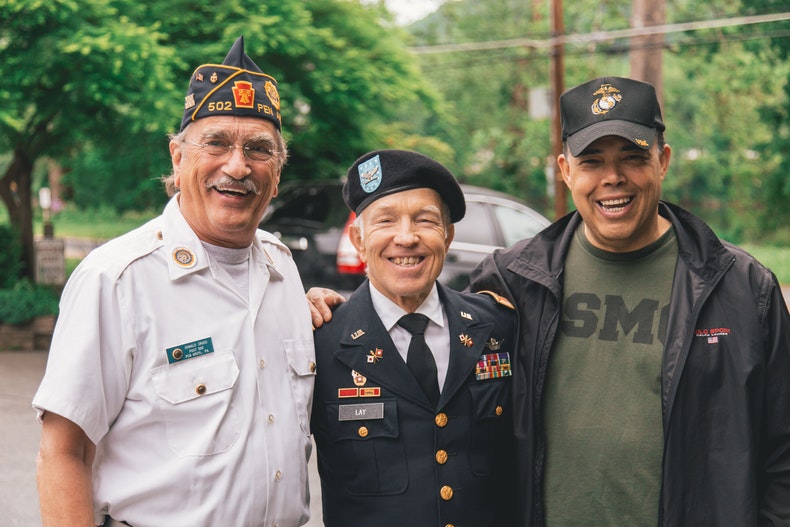Veterans bring a unique set of skills, experiences, and values to the table, making them invaluable assets to any organization.
However, despite their qualifications and dedication, many veterans face challenges when transitioning from military to civilian life, particularly in securing meaningful employment.
In this article, we delve into the importance of veteran inclusion in the workplace, the challenges they encounter, and how businesses can create a supportive environment for these deserving individuals.

Importance of Veteran Inclusion in the Workplace
Veterans possess a wealth of transferable skills gained through their military service, including leadership, teamwork, problem-solving, and resilience. These qualities are highly sought after in the corporate world and can contribute to a more diverse, productive, and innovative workforce.
Moreover, hiring veterans is not just a moral obligation but also makes good business sense. Studies have shown that companies with a strong veteran presence tend to perform better financially, thanks to their disciplined work ethic, adaptability, and commitment to excellence.
Beyond the bottom line, hiring veterans is a powerful way for organizations to demonstrate their appreciation for the sacrifices made by those who have served their country. Providing employment opportunities for veterans not only honors their service but also helps them reintegrate into civilian life, fostering a sense of belonging and purpose.
Challenges Faced by Veterans
Despite their many strengths, veterans encounter several obstacles when transitioning to civilian employment. One of the most significant challenges is translating their military experience into terms that civilian employers can understand and appreciate.
The jargon and terminology used in the military may not always align with corporate language, making it difficult for veterans to articulate their skills and qualifications effectively.
Additionally, veterans may struggle with the lack of a formal network or support system outside of the military. The camaraderie and sense of belonging experienced in the armed forces can be challenging to replicate in a civilian workplace, leading to feelings of isolation or alienation.
Furthermore, some veterans may face physical or mental health issues as a result of their service, such as post-traumatic stress disorder (PTSD) or traumatic brain injury (TBI).
These conditions can impact their ability to secure and maintain employment, requiring employers to provide additional support and accommodations.
Accommodating Veterans in the Workplace
Creating a veteran-friendly workplace starts with understanding and addressing the unique needs and challenges faced by this population. Employers can take several steps to accommodate veterans and foster a supportive culture within their organizations.
First and foremost, businesses should educate themselves and their employees about the value of hiring veterans and the skills they bring to the table.
This includes providing training on military culture and terminology to help bridge the gap between the military and civilian worlds.
Furthermore, companies can implement veteran outreach programs and partnerships with military transition assistance programs to connect with qualified veteran candidates.
These initiatives can help veterans navigate the job search process more effectively and provide them with access to employment opportunities that align with their skills and experience.
Creating a Supportive Working Environment
In addition to recruitment efforts, employers should also focus on creating an inclusive and supportive work environment for veterans. This may involve offering mentorship programs, Employee Resource Groups (ERGs) for veterans, or flexible work arrangements to accommodate their unique needs.
Moreover, providing access to resources and support services, such as counseling, career coaching, or disability accommodations, can help veterans overcome any barriers they may encounter in the workplace.
By proactively addressing these issues, businesses can create a culture of inclusivity and support that benefits all employees, not just veterans.
Offering Help with VA Claims
One innovative way for businesses to support veterans in the workplace is by offering assistance with VA claims through partnerships with consulting companies for veterans.
These organizations specialize in helping veterans navigate the complexities of the VA disability claims process, ensuring they receive the benefits and support they deserve.
By partnering with a consulting company such as VA Claims Insider, employers can demonstrate their commitment to supporting veteran employees beyond the workplace.
These services can include guidance on filing disability claims, obtaining healthcare benefits, or accessing vocational rehabilitation programs.
Furthermore, offering VA claims assistance can alleviate some of the stress and uncertainty that veterans may experience when dealing with the bureaucracy of the VA system.
By providing this additional support, businesses can show their appreciation for the sacrifices made by veterans and help them transition more smoothly into civilian life.
Conclusion
The inclusion of veterans in the workforce is not only a moral imperative but also a strategic business decision.
By recognizing and addressing the challenges faced by veterans and building a supportive workplace culture, businesses can tap into a valuable talent pool and contribute to the well-being and success of those who have served their country.
Through initiatives such as offering help with VA claims, employers can go above and beyond to support veterans in their transition to civilian employment, honoring their service and sacrifice.